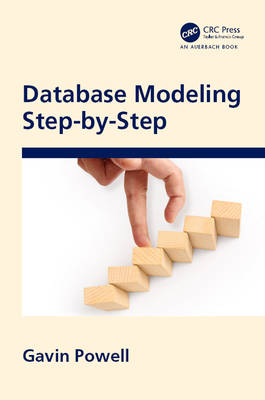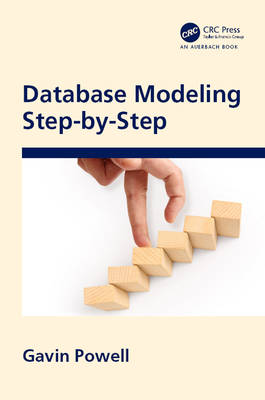
- Retrait gratuit dans votre magasin Club
- 7.000.000 titres dans notre catalogue
- Payer en toute sécurité
- Toujours un magasin près de chez vous
- Retrait gratuit dans votre magasin Club
- 7.000.0000 titres dans notre catalogue
- Payer en toute sécurité
- Toujours un magasin près de chez vous
Description
With the aim of simplifying relational database modeling, Database Modeling Step-by-Step presents the standard approach to database normalization and then adds its own approach, which is a more simplistic, intuitive way to building relational database models. Going from basics to contemporary topics, the book opens with relational data modeling and ends with BigData database modeling following a road map of the evolution in relational modeling and including brief introductions to data warehousing and BigData modeling. A break-down of the elements of a model explains what makes up a relational data model. This is followed by a comparison between standard normalization and a more simplistic intuitive approach to data modeling that a beginner can follow and understand.
A brief chapter explains how to use the database programming language SQL (Structured Query Language), which reads from and writes to a relational database. SQL is fundamental to data modeling because it helps in understanding how the model is used. In addition to the relational model, the last three chapters cover important modern world topics including denormalization that leads into data warehouses and BigData database modeling. The book explains how there is not much to logical data modeling in BigData databases because as they are often schema-less, which means that BigData databases do not have schemas embedded into the database itself, they have no metadata and thus not much of a logical data model.
Online bonus chapters include a case study that covers relational data modeling and are available at the author's web site: www.oracletroubleshooter.com/datamodeling.html
Spécifications
Parties prenantes
- Auteur(s) :
- Editeur:
Contenu
- Nombre de pages :
- 248
- Langue:
- Anglais
Caractéristiques
- EAN:
- 9780367422172
- Date de parution :
- 18-12-19
- Format:
- Livre broché
- Format numérique:
- Trade paperback (VS)
- Dimensions :
- 155 mm x 231 mm
- Poids :
- 385 g

Les avis
Nous publions uniquement les avis qui respectent les conditions requises. Consultez nos conditions pour les avis.






